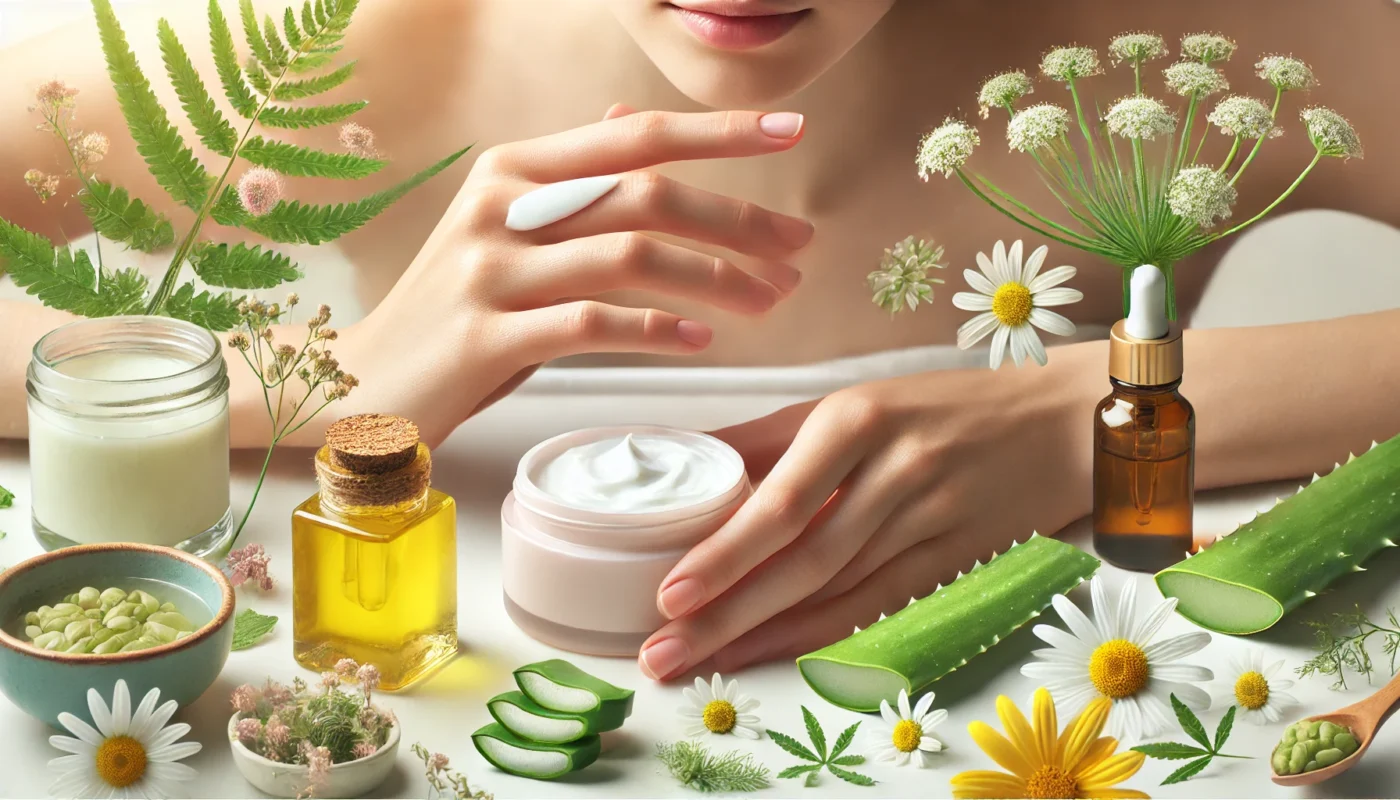Skin inflammation is a common concern that affects individuals of all ages. While it can be a source of discomfort and self-consciousness, understanding how to effectively manage and reduce skin inflammation is crucial for maintaining healthy, radiant skin. In this comprehensive guide, we will explore the causes of skin inflammation and provide actionable strategies to reduce redness and prevent flare-ups using holistic and alternative approaches.
You May Also Like: Understanding Autoimmune Fatigue: Causes and Solutions
Understanding Skin Inflammation
Skin inflammation, often characterized by redness, swelling, and irritation, can be triggered by various factors such as environmental irritants, allergies, autoimmune disorders, and underlying health conditions. It is the body’s natural response to protect itself from perceived threats, but when persistent, it can lead to discomfort and other complications.
The Science Behind Skin Inflammation
Inflammation is a complex biological response involving the immune system, where white blood cells and substances they produce protect the body from infection and foreign invaders. However, when this response is excessive or misdirected, it can result in chronic inflammation, contributing to a range of skin disorders such as eczema, psoriasis, and acne.
Immune System’s Role
The immune system plays a dual role in skin inflammation by attacking foreign bodies and sometimes mistakenly targeting the body’s own cells. This misdirected response is often the root cause of chronic skin conditions. Understanding this mechanism can help in identifying potential therapeutic targets.
Chronic Inflammation Pathway
Chronic inflammation occurs when the body’s inflammatory response fails to resolve, leading to prolonged tissue damage. This state is often maintained by continuous exposure to irritants or persistent stressors, making it essential to identify and mitigate these factors.
Skin’s Protective Barrier
The skin acts as a barrier, preventing pathogens from entering and maintaining homeostasis. Any disruption in this barrier can prompt an inflammatory response, highlighting the importance of maintaining skin integrity through proper care and nutrition.

Holistic Approaches to Reduce Skin Redness
Taking a holistic approach to reduce skin inflammation involves addressing not just the symptoms but also the underlying causes. Here are some strategies to consider:
1. Nutritional Interventions
Diet plays a crucial role in managing inflammation. Consuming a balanced diet rich in anti-inflammatory foods can significantly reduce skin inflammation. Focus on incorporating:
Omega-3 Fatty Acids
Found in fish like salmon and mackerel, omega-3s help reduce inflammation at the cellular level. These essential fatty acids work by modulating the production of inflammatory cytokines, leading to a calmer skin environment. Incorporating omega-3s into your diet not only benefits the skin but also supports cardiovascular health.
Antioxidants
Foods high in antioxidants, such as berries, green leafy vegetables, and nuts, combat oxidative stress and inflammation. Antioxidants neutralize free radicals, which can otherwise cause cellular damage and exacerbate inflammation. Regular consumption of these foods can enhance skin resilience and promote a youthful appearance.
Probiotics
Fermented foods like yogurt, kefir, and sauerkraut promote gut health, which is closely linked to skin health. A healthy gut microbiome supports a robust immune system, reducing the likelihood of inflammatory skin conditions. Exploring different sources of probiotics can cater to dietary preferences and improve overall well-being.
2. Herbal Remedies and Supplements
Certain herbs and supplements have anti-inflammatory properties that can support skin health:
Turmeric
Contains curcumin, known for its potent anti-inflammatory and antioxidant properties. Curcumin helps downregulate inflammatory pathways, offering relief for chronic skin conditions. Integrating turmeric into meals or taking it as a supplement can provide long-term benefits.
Green Tea Extract
Rich in polyphenols, green tea can soothe irritated skin and reduce redness. The catechins in green tea possess anti-inflammatory properties that can be applied topically or consumed as a beverage for dual-action benefits. Incorporating green tea into daily routines can be a soothing ritual for skin and mind.
Aloe Vera
Known for its soothing effects, aloe vera can be applied topically to calm inflamed skin. The gel contains compounds that reduce redness and promote healing, making it an excellent option for immediate relief. Growing aloe at home provides a sustainable source for regular use.
3. Stress Management
Chronic stress can exacerbate inflammation and trigger skin flare-ups. Incorporating stress-reducing practices such as yoga, meditation, and deep-breathing exercises can help manage stress levels and, in turn, reduce skin inflammation.
Yoga and Physical Relaxation
Yoga combines physical postures with breathing techniques to reduce stress and improve circulation. By practicing yoga regularly, you can lower stress hormones and enhance your body’s ability to manage inflammation. The physical aspect also boosts flexibility and promotes overall health.
Meditation and Mindfulness
Meditation encourages a state of calmness and focus, helping to alleviate stress-related inflammation. Through mindfulness practices, individuals can gain better control over their reactions to stress, which can manifest in healthier skin. Consistent practice fosters resilience against daily stressors.
Deep-Breathing Exercises
Deep-breathing exercises activate the parasympathetic nervous system, promoting relaxation and reducing stress-induced inflammation. These exercises can be practiced anywhere, providing a quick and effective way to manage stress. Incorporating breathing exercises into daily routines can significantly improve mental and skin health.

Preventing Skin Inflammation
Preventing skin inflammation involves adopting a proactive approach to skincare and lifestyle. Here are some effective prevention strategies:
1. Identify and Avoid Triggers
Identify any allergens or irritants that may trigger inflammation, such as certain skincare products, fabrics, or environmental factors, and avoid them whenever possible.
Allergen Awareness
Keeping a journal of skincare products and environmental exposures can help identify potential allergens. Once identified, avoiding these triggers can prevent unnecessary inflammation and improve skin condition.
Patch Testing
Before introducing new products, perform a patch test to ensure they do not provoke a reaction. This simple step can prevent adverse reactions and help you find products suited to your skin type.
Environmental Considerations
Consider environmental factors like pollution or extreme weather conditions that might affect your skin. Protective measures such as wearing appropriate clothing or using air purifiers can mitigate these effects.
2. Gentle Skincare Routine
Adopt a gentle skincare routine using products free of harsh chemicals and fragrances. Opt for hypoallergenic and non-comedogenic products to minimize irritation. Always patch test new products to ensure they do not provoke a reaction.
Ingredient Awareness
Being aware of ingredients in skincare products can help avoid those that are known irritants. Researching and choosing products with natural ingredients can enhance skin health without the risk of inflammation.
Consistency is Key
Consistency in skincare routines ensures that the skin can adjust and benefit from the products used. Avoid frequently changing products to give your skin time to respond and adapt.
Nightly Rituals
Establishing a nightly skincare routine can aid in skin repair and regeneration. Using gentle cleansers and moisturizers at night supports the skin’s natural healing process.
3. Hydration and Moisturization
Keeping the skin well-hydrated is essential for maintaining its barrier function and preventing inflammation. Use a moisturizer suitable for your skin type, and drink plenty of water to maintain hydration from within.
Choosing the Right Moisturizer
Selecting a moisturizer that aligns with your skin type can prevent irritation and enhance barrier function. Consider products with hydrating ingredients like hyaluronic acid for optimal results.
Importance of Internal Hydration
Drinking sufficient water daily supports overall skin health by maintaining moisture levels and flushing out toxins. Aim for at least eight glasses of water a day to keep your skin hydrated from within.
Humidifiers for Dry Environments
Using a humidifier in dry environments can help maintain skin moisture levels, preventing dryness and associated inflammation. This is especially beneficial during winter months when indoor heating can cause skin dehydration.
4. Sun Protection
Ultraviolet (UV) rays can aggravate skin inflammation. Use a broad-spectrum sunscreen daily and wear protective clothing to shield your skin from harmful UV exposure.
Sunscreen as a Daily Essential
Incorporating sunscreen into your daily routine is crucial for preventing UV-induced inflammation and long-term skin damage. Opt for a broad-spectrum formula with at least SPF 30.
Protective Clothing
Wearing hats, sunglasses, and long sleeves can provide additional protection against UV rays. Lightweight, breathable fabrics offer comfort without compromising on sun safety.
Seeking Shade
Whenever possible, stay in the shade during peak sun hours to minimize UV exposure. This simple habit can significantly reduce the risk of inflammation and photoaging.

The Role of Lifestyle in Managing Skin Inflammation
Our lifestyle choices have a profound impact on skin health. By making informed decisions, we can significantly reduce the risk of chronic inflammation.
1. Regular Exercise
Engaging in regular physical activity improves circulation and helps regulate the immune system, which can reduce inflammation throughout the body, including the skin.
Cardiovascular Benefits
Exercise promotes cardiovascular health, which in turn supports efficient nutrient and oxygen delivery to the skin. This improved circulation can enhance skin vitality and reduce inflammation.
Muscle Building and Skin Support
Building muscle through strength training provides long-term support for skin health by improving metabolism and reducing stress hormones that can exacerbate inflammation.
Variety in Exercise
Incorporating a variety of exercises such as aerobic, strength training, and flexibility exercises ensures comprehensive health benefits that extend to the skin.
2. Adequate Sleep
Quality sleep is essential for skin repair and recovery. Aim for 7-9 hours of uninterrupted sleep per night to support the body’s natural healing processes.
Sleep and Skin Renewal
During sleep, the body undergoes vital repair processes, making adequate rest essential for maintaining healthy skin. Prioritizing sleep can reduce signs of inflammation and support skin rejuvenation.
Creating a Sleep-Conducive Environment
Ensure your sleeping environment is comfortable, dark, and quiet to promote restful sleep. Consider using blackout curtains and white noise machines to enhance sleep quality.
Consistent Sleep Schedule
Maintaining a consistent sleep schedule helps regulate the body’s internal clock, promoting better rest and recovery. Going to bed and waking up at the same time daily can improve sleep quality and skin health.
3. Mind-Body Connection
Practices that strengthen the mind-body connection, such as mindfulness and acupuncture, can help alleviate stress and improve overall well-being, subsequently reducing inflammation.
Mindfulness Practices
Mindfulness involves staying present and fully engaging in the moment, which can reduce stress and its inflammatory effects on the skin. Regular practice can enhance emotional resilience and skin health.
Acupuncture for Stress Relief
Acupuncture has been shown to reduce stress and promote relaxation, which can have a positive impact on skin inflammation. Regular sessions can complement other holistic approaches to improve skin conditions.
Integration into Daily Life
Incorporating mind-body practices into daily routines can foster a more balanced lifestyle, reducing stress and its impact on skin health. Exploring different practices allows you to find what best suits your lifestyle and needs.
Conclusion
Reducing skin inflammation requires a multifaceted approach that combines dietary, lifestyle, and skincare strategies. By understanding the root causes and implementing these holistic and alternative approaches, you can effectively manage skin inflammation and enjoy healthier, more resilient skin. Remember, patience and consistency are key, and consulting with a healthcare professional can provide personalized guidance tailored to your specific needs.
By embracing these strategies, you are not only taking steps towards reducing skin redness and inflammation but also enhancing your overall health and well-being. The journey to healthier skin is ongoing, and with the right tools and knowledge, you can achieve and maintain the radiant skin you desire.
Further Reading:
Diet, sleep, and exercise in inflammatory skin diseases
skin health, skin inflammation, hydration, sun protection, lifestyle choices, exercise, sleep, mindfulness, skincare, holistic health, UV protection, healthy skin, wellness, beauty tips, natural remedies
Important Note: The information contained in this article is for general informational purposes only, and should not be construed as health or medical advice, nor is it intended to diagnose, prevent, treat, or cure any disease or health condition. Before embarking on any diet, fitness regimen, or program of nutritional supplementation, it is advisable to consult your healthcare professional in order to determine its safety and probable efficacy in terms of your individual state of health.
Regarding Nutritional Supplements Or Other Non-Prescription Health Products: If any nutritional supplements or other non-prescription health products are mentioned in the foregoing article, any claims or statements made about them have not been evaluated by the U.S. Food and Drug Administration, and such nutritional supplements or other health products are not intended to diagnose, treat, cure, or prevent any disease.

